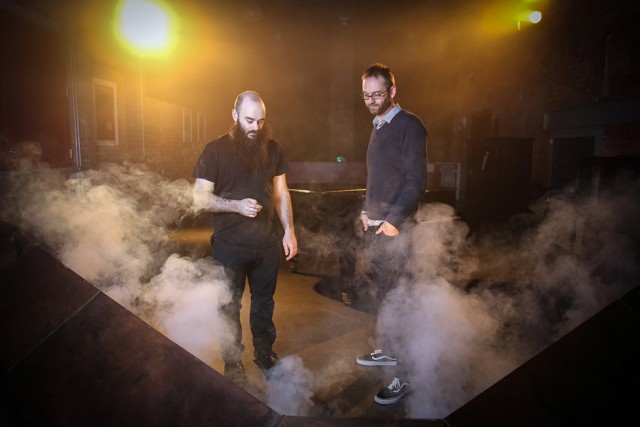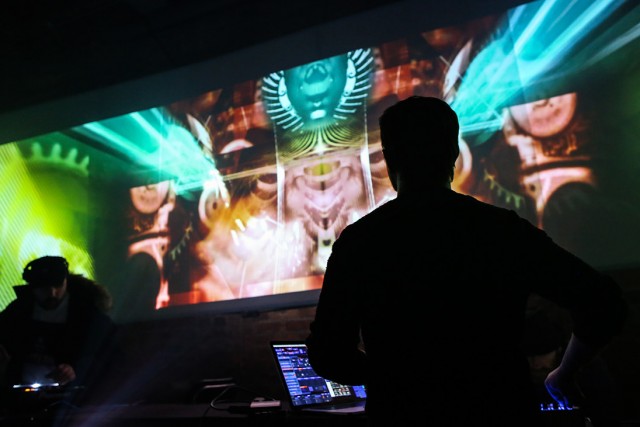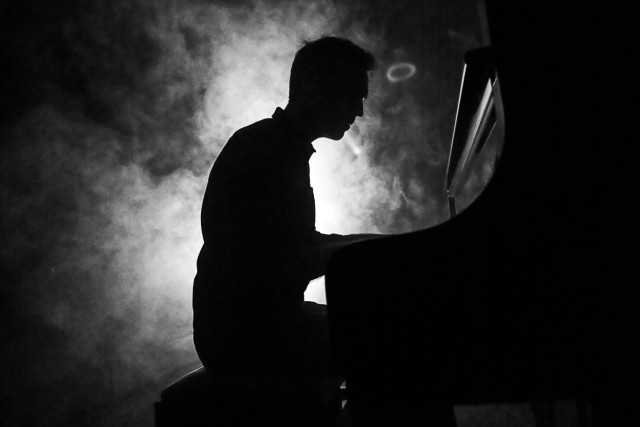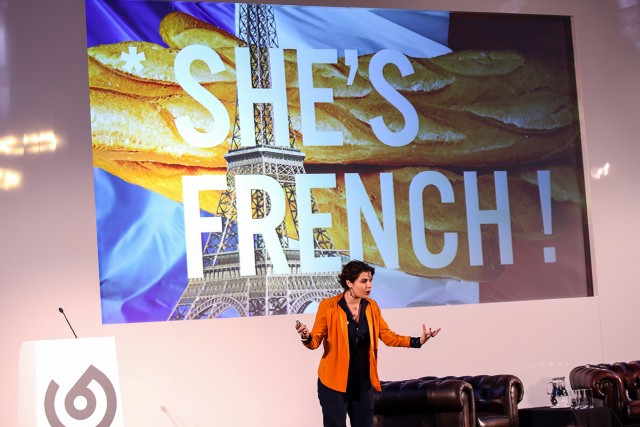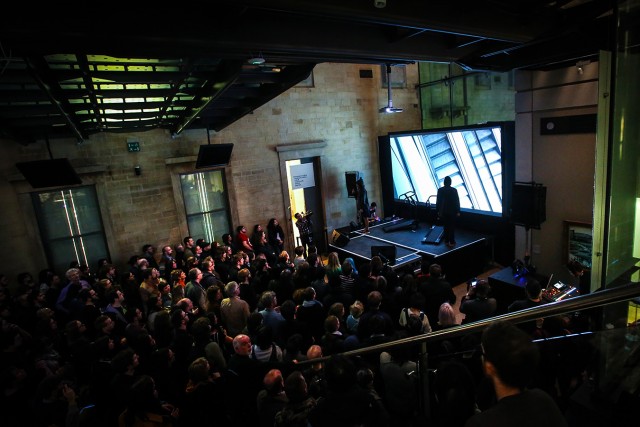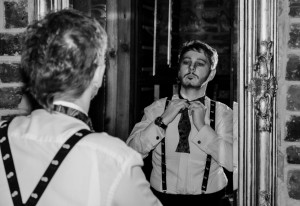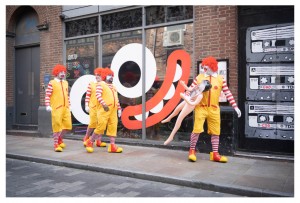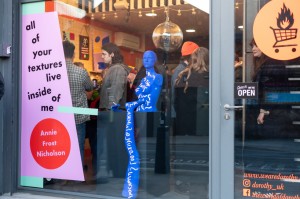“Even more strange and glorious than expected”: FutureEverything Festival — Reviewed
Commentaries on the contemporary world — from the “robot apocalypse”, to finite natural resources, to the threats of indiscriminate terror attacks — encapsulated this year’s FutureEverything Festival, finds Vanessa Wheeler…
FutureEverything Festival has taken place in Manchester every year since 1995, traversing through science and the arts with one aim in mind: to unravel the future. The first day of the festival — a mixture of live art and a conference of keynote speakers — saw a collaboration of scientists, creators, environmentalists, artists and performers all coming together to explore this year’s climate change theme, cryptically entitled Less and More.
First, the conference at Manchester Town Hall. “We are intelligence agents”, announced Nelly Ben Hayoun; kicking off a series of morning talks about Intelligence: making sense of it, controlling it and avoiding disasters. Ben Hayoun herself is a human wonder-woman; a director and ‘designer of experiences’ at the SETI Institute, immersing herself in a plethora of projects, like directing the International Space Orchestra, and working at the CERN Large Hadron Collider. She’s even directed and performed in her own film, Disaster Playground (2015). But more to the point, Ben Hayoun exampled the sensational achievements that can be crafted from human intelligence alone.
Looking at Artificial Intelligence, anthropologist Lydia Nicholas and Internet artist Darius Kazemi spoke in contrast about AI’s contentious role within society. As Kazemi put it, “the robot apocalypse has been here for centuries”; to which Nicholas elaborated that AI has taken over the world, just “not in the way we understand”. Nicholas used her background in health to highlight big data collection being an essential manifestation of AI, whereas Kazemi spoke of the history of algorithms, from the groundbreaking Alpha Go (the first computer to ever beat a human at the game of Go) to algebra; algorithms which he uses today to create comedy ‘bots’ on Twitter (he prefers you call his bots ‘alien’ or ‘anthropogenic’ intelligence rather than ‘artificial’, since he doesn’t believe in the difference between natural and unnatural).
After discussing the role of the creator in the responsibility of AI — a discussion which was reminiscent of AL and AL’s film about Alan Turing, which was also recently hosted in this city – the talk concluded with Nicholas explaining our complex relationship with this specific form of intelligence: “We communicate different kinds of identities. Everything is technology and everything is natural.”
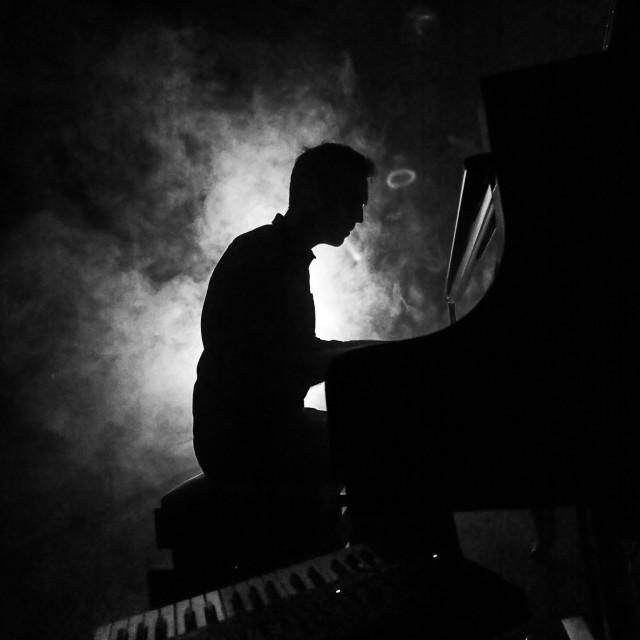
Earth, afternoon talks focused on the festival theme of climate change and environmentalism, was sprinkled with speakers such as Dr Carlos Buontempo of the Met Office and local Manchester City Councillor Kate Chappell. Scientist Alice Bell stood out; she inspired the audience with her 10:10 projects, which not only fight climate change head-on, through the widespread distribution of solar panels, but actually encourage everyday people to buy shares in their local renewable power sources. Back in 2012, Tate Modern was gifted with a 54ft, one-and-a-half tonne wind turbine as a form of protest after it renewed its sponsorship with oil company BP, and whilst Bell told this anecdote humorously, it does underline how seriously communities and individuals take climate change in comparison to the nonchalant attitude that big businesses carry regarding our finite natural resources.
Unsurprisingly, the series of Earth talks were simply not as grasping as their predecessor, despite the entire event being geared as a platform to discuss one of the biggest threats to our future. Perhaps that says more about the festival-goers than FutureEverything itself; even at a festival curated to address climate change, people would rather wander off and enjoy the ‘fun’ bits.
One installation that grabbed the attention of everyone, regardless, was Project Ukko: an aesthetically stunning visualisation of wind data produced amongst others by the Met Office and Barcelona Supercomuting Center (BSC). Aiming to support wind farm operators and wind energy traders in making decisions (such as when to plan maintenance and where to invest in new wind farms), millions of data inputs were brought to life, weaving seamlessly into moving patterns via large projection. The result was hypnotising.
Equally. Smoke Signals, hidden away at the International Anthony Burgess Foundation, was a live, sculptural piece that threw the festival on a pleasant tangent. Using the data of seven arts organisations, a wooden apparatus billowed smoke every time the data set moved or changed; heavily absorbed into the dark surroundings and accompanied by sub-sonic frequencies. Created by artist duo Ed Carter and David Cranmer, this at first archaic performance provided a vital sanctuary amidst a hectic festival; giving time to reflect on debates around information sharing, the climate crisis and technology that evolves too fast to keep up with.
Arguably the magnum opus of FutureEverything — a sold-out world premiere by Gazelle Twin entitled Kingdom Come — was even more strange and glorious than expected. Compressed into the back of Manchester Art Gallery, hundreds watched as the female musician and an anonymous performer stripped themselves of gym wear to reveal grey suits, all whilst running nonstop on exercise treadmills. Heavy beats and deep vocals by Gazelle Twin were paired with a projected film by Chris Turner and Tash Tung; shots of extreme violence and terrorism were interjected with clips of savage consumer crowds and short videos of comic relief. The sound of guns reloading was drowned out only by the hacking coughs of the performers onstage.
Such commentaries on the contemporary world — from the maladjusted pressures of consumer capitalist culture, to the threats of arbitrary violence and indiscriminate terror attacks — encapsulated Kingdom Come’s urban nightmare, inspired by J.G. Ballard’s psychogeographic novel of the same name. Just as the audience were beginning to process the abstruse social commentary — and interesting giving the festival title, Less and More – Gazelle Twin stepped into the elevator and simply disappeared; a denouement that perhaps created more questions than it answered.
Vanessa Wheeler
Vanessa saw FutureEverything Festival on Thursday 31 March 2016

